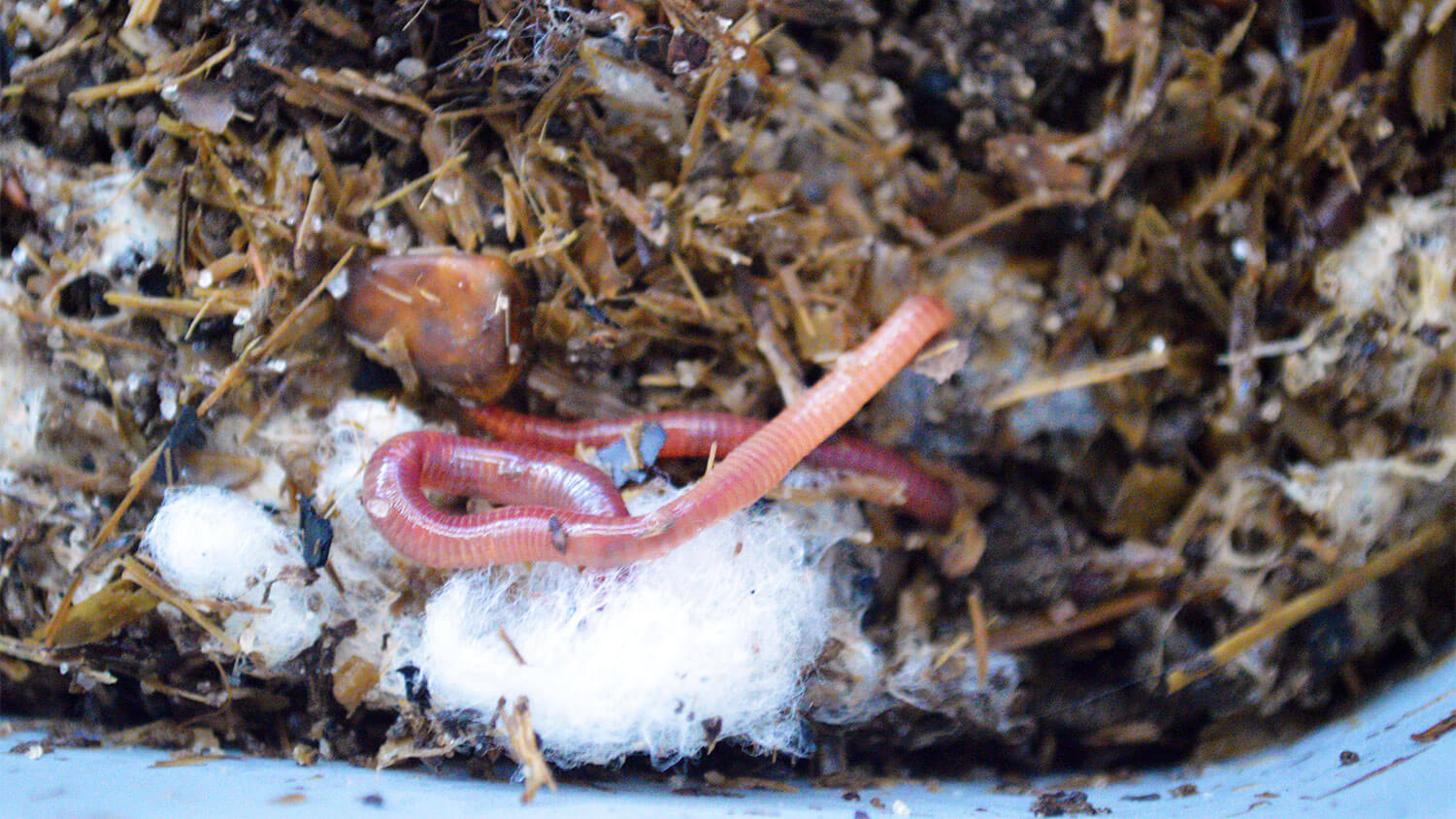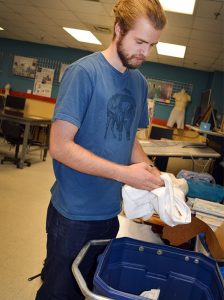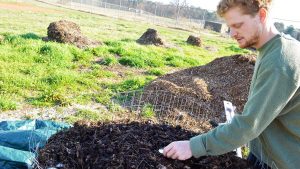Students Compost Cotton Waste From Campus Labs

In order to reduce waste sent to landfill, NC State University already composts uneaten food, compostable packaging and even paper towels. So why not cotton, too?

That’s the question that textile engineering student Patrick Balogh tested with a pilot project funded by the NC State Sustainability Fund.
NC State’s College of Textiles educates students while also supporting industry innovation in its various labs. As is the case with most labs, experiments don’t always work and leftover material is common. Balogh wanted to explore whether composting would be viable for natural fiber waste created in textile labs.
After reading a blog detailing cotton composting at Fashion Institute of Technology in New York City, Balogh began researching the prevalence of cotton waste in NC State textile labs. He found three sources: the fashion lab where students prototype garments, the yarn spinning lab and the dyeing/finishing lab. All total, these labs produce about 100 pounds per month of cotton waste.
“It’s not a huge amount in comparison to overall waste, but only part of this effort is about waste diversion. The other part of it is an educational opportunity that hopefully inspires other creative, sustainable solutions,” Balogh said.

With a grant from the NC State Sustainability Fund, Balogh launched a pilot program to collect cotton waste and compost that waste at the university’s Compost Learning Lab. Much of the goal was to figure out what works, doesn’t work and whether there’s future opportunity to implement a permanent cotton compost program near the College of Textiles.
Working with NC State’s Waste Reduction and Recycling, Balogh setup cotton collection bins in all three lab spaces. Through signage and presentations to students and staff, Balogh made lab users aware of the new waste diversion opportunity.
Once enough cotton was collected, Balogh had it shredded on campus to increase the speed of the composting process. Rhonda Sherman, NC State’s extension specialist in composting, and Jorge Montezuma, an organics recycling specialist with the NC Department of Environmental Quality, helped Balogh develop customized composting plans.

The experiment includes two composting methods: a traditional compost pile and vermicomposting, which utilizes worms to break down the fabric. From January through March, the two experiments have been monitored and maintained by students. At the end of the experiment, the compost will be analyzed for quality and returned to campus as nutrient-rich soil amendment.
Balogh is already looking ahead to future iterations of experiments, such as using a more specialized compost bin, comparing compost time required for shredded versus non-shredded cotton and integrating cotton into existing campus composting collection.
“One of my motivations was to start something that can hopefully make an impact sustainability-wise and hopefully be sustainable after I graduate,” Balogh said. “This was a great learning experience for me. I’m excited we’ve been able to get some cotton composted.”
- Categories: